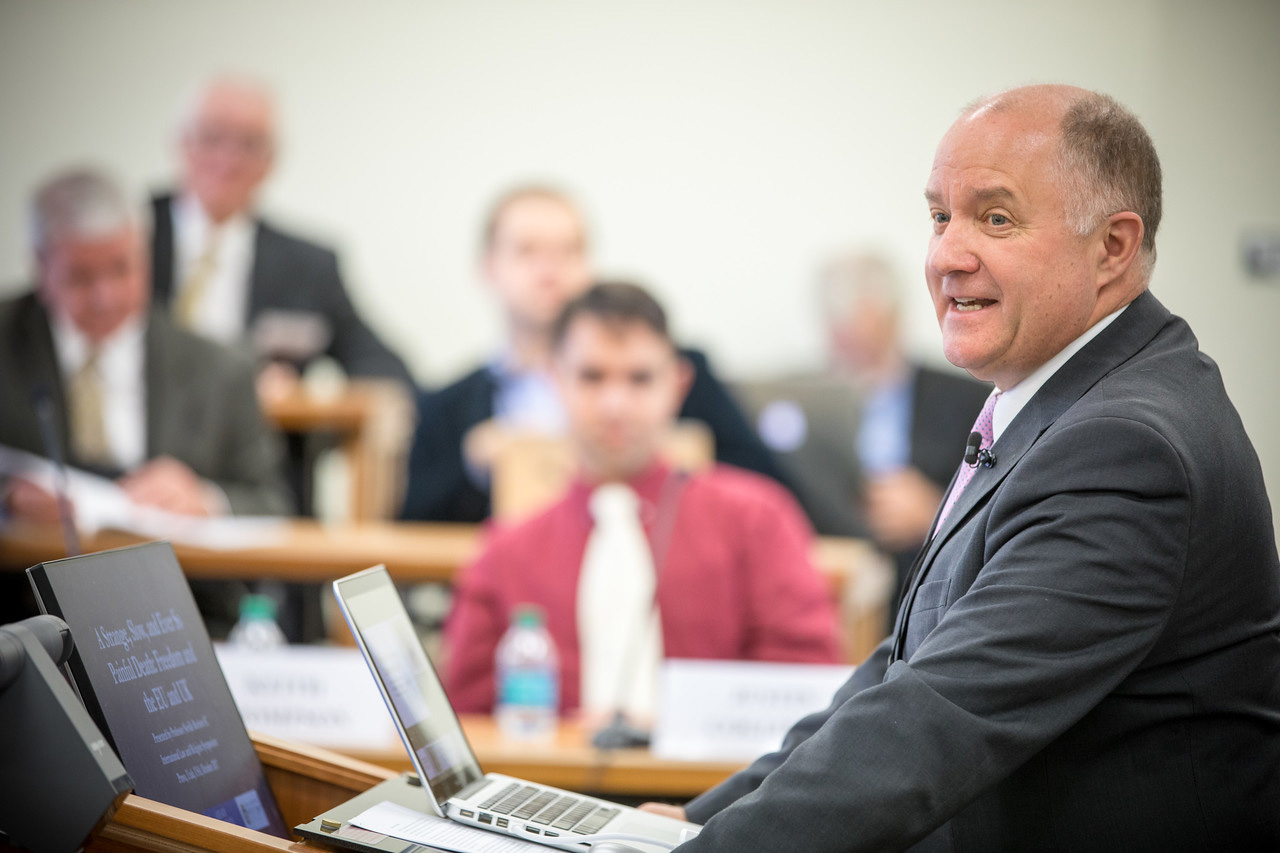





Keith Thompson
by Melissa Hartman, BYU Law Student and Symposium Volunteer
The breakout session on Comparative Legal Protections of Religious Freedom in a Changing World was held Tuesday, October 3, 2017 and moderated by Justin Collings, Associate Professor of Law at Brigham Young University’s J. Reuben Clark Law School. It included panelists, Neville G. Rochow, Barrister and Professor of Law at Notre Dame Australia and the University of Adelaide, and Keith Thompson, Associate Professor of Law at the School of Law at the University of Notre Dame Sydney.
Professor Rochow contended that by a number of political and legal mechanisms, religions are being closed down throughout the western world. Though history suggests mankind is innately spiritual, religion is being supplanted by various forms of secularism. He invited participants to consider how dystopias such as those described by Orwell and Huxley arise. When a pillar of social order collapses, other forces seek to replace it, and that is the world we’re moving into as pillars collapse around us. He explained that a way to remove human rights and freedom is to remove humanity. A first step toward that is to remove gender, as once a person loses their gender a part of their identity is gone. It then becomes easier to move into other parts of identity, and everyone is then moving to the same rhythm. He asserted that the concepts of freedom and equality are being conflated and that we are seeing the destruction of tolerance in the name of tolerance.
Professor Thompson focused his remarks on the persistence of the religious confession privilege (RCP). He explained this privilege of confessional confidentiality will continue only inasmuch as freedom of conscience and religion remain a virtue. He addressed the debate on whether clergy should report confessions of child abuse, explaining on one side of the debate, proponents of reporting say it would help eliminate child abuse, while some reasoned responses suggest an abolition of RCP would not save one child. Statutes confirm RCP in the US, most Australian jurisdictions, New Zealand, and some Canadian jurisdictions. Calls for direct abrogation of RCP in Ireland appeared to have been moderated by Marie Keenan’s pivotal findings that child sexual abusers are unlikely to admit to a priest in the confessional, rather confessing such actions, if at all, in terms of “having an affair.” In the US, he explained that the majority of states exempt clergy from reporting whether they’ve receive a confidential communication from any source. In Australia, there is a common law tradition of RCP and early indications are that the states are skeptical of changes to this privilege. He concluded that RCP is alive and well in Anglo jurisdictions outside of the UK.
